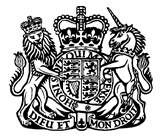




Everything For The Metal Detectorist


The Paragon Of Metal Detecting
Powered By Sispro1
Northern Ireland

NORTHERN IRELAND
Historic Monuments and Archaeological Objects (Northern Ireland) Order 1995 No. 1625 (N.I. 9)
The Treasure Act 1996 Applies in Northern Ireland, However the law relating to searching for archaeological object differs from England and Wales.
ARCHAEOLOGICAL OBJECTS
Restriction on searching for archaeological objects, etc.
Historic Monuments and Archaeological Objects (Northern Ireland) Order 1995 No. 1625 (N.I. 9)
The Treasure Act 1996 Applies in Northern Ireland, However the law relating to searching for archaeological object differs from England and Wales.
ARCHAEOLOGICAL OBJECTS
Restriction on searching for archaeological objects, etc.
41. - (1) Any person who, except under and in accordance with any conditions attached to a licence issued by the Department under this Article, excavates in or under any land (whether or not such excavation involves the removal of the surface of the land) for the purpose of searching generally for archaeological objects or of searching for, exposing or examining any particular structure or thing of archaeological interest shall be guilty of an offence and liable on summary conviction to a fine not exceeding level 3 on the standard scale.
Restrictions on use of metal detectors
(1)If a person uses a metal detector in a protected place without the written consent of the Commission (in a case of a place situated in England) or of the Secretary of State (in any other case)] he shall be guilty of an offence and liable on summary conviction or, in Scotland, on conviction before a court of summary jurisdiction, to a fine not exceeding level 3 on the standard scale].
(2)In this section-
metal detector means any device designed or adapted for detecting or locating any metal or mineral in the ground; and
protected place means any place which is either-
(a)the site of a scheduled monument or of any monument under the ownership or guardianship of the Secretary of State [or the Commission] or a local authority by virtue of this Act; or
(b)situated in an area of archaeological importance.
(3)If a person without written consent] removes any object of archaeological or historical interest which he has discovered by the use of a metal detector in a protected place he shall be guilty of an offence and liable on summary conviction to a fine not exceeding the statutory maximum or on conviction on indictment to a fine.
The reference in this subsection to written consent is to that of the Commission (where the place in question is situated in England) or of the Secretary of State (in any other case)]
(4)A consent granted by the Secretary of State or the Commission] for the purposes of this section may be granted either unconditionally or subject to conditions.
(5)If any person-
(a)in using a metal detector in a protected place in accordance with any consent granted by the Secretary of State or the Commission] for the purposes of this section; or
(b)in removing or otherwise dealing with any object which he has discovered by the use of a metal detector in a protected place in accordance with any such consent;
fails to comply with any condition attached to the consent, he shall be guilty of an offence and liable, in a case falling within paragraph (a) above, to the penalty provided by subsection (1) above, and in a case falling within paragraph (b) above, to the penalty provided by subsection (3) above.
(6)In any proceedings for an offence under subsection (1) above, it shall be a defence for the accused to prove that he used the metal detector for a purpose other than detecting or locating objects of archaeological or historical interest.
(7)In any proceedings for an offence under subsection (1) or (3) above, it shall be a defence for the accused to prove that he had taken all reasonable precautions to find out whether the place where he used the metal detector was a protected place and did not believe that it was.
Restrictions on use of metal detectors
(1)If a person uses a metal detector in a protected place without the written consent of the Commission (in a case of a place situated in England) or of the Secretary of State (in any other case)] he shall be guilty of an offence and liable on summary conviction or, in Scotland, on conviction before a court of summary jurisdiction, to a fine not exceeding level 3 on the standard scale].
(2)In this section-
metal detector means any device designed or adapted for detecting or locating any metal or mineral in the ground; and
protected place means any place which is either-
(a)the site of a scheduled monument or of any monument under the ownership or guardianship of the Secretary of State [or the Commission] or a local authority by virtue of this Act; or
(b)situated in an area of archaeological importance.
(3)If a person without written consent] removes any object of archaeological or historical interest which he has discovered by the use of a metal detector in a protected place he shall be guilty of an offence and liable on summary conviction to a fine not exceeding the statutory maximum or on conviction on indictment to a fine.
The reference in this subsection to written consent is to that of the Commission (where the place in question is situated in England) or of the Secretary of State (in any other case)]
(4)A consent granted by the Secretary of State or the Commission] for the purposes of this section may be granted either unconditionally or subject to conditions.
(5)If any person-
(a)in using a metal detector in a protected place in accordance with any consent granted by the Secretary of State or the Commission] for the purposes of this section; or
(b)in removing or otherwise dealing with any object which he has discovered by the use of a metal detector in a protected place in accordance with any such consent;
fails to comply with any condition attached to the consent, he shall be guilty of an offence and liable, in a case falling within paragraph (a) above, to the penalty provided by subsection (1) above, and in a case falling within paragraph (b) above, to the penalty provided by subsection (3) above.
(6)In any proceedings for an offence under subsection (1) above, it shall be a defence for the accused to prove that he used the metal detector for a purpose other than detecting or locating objects of archaeological or historical interest.
(7)In any proceedings for an offence under subsection (1) or (3) above, it shall be a defence for the accused to prove that he had taken all reasonable precautions to find out whether the place where he used the metal detector was a protected place and did not believe that it was.
Copyright All Rights Reserved by Nigel G Wilcox E-Mail: ngwilcox100@gmail.com
Complimentary Topics:
Designed by Nigel G Wilcox
Insurance Cover
2. Menu
Pages
Member NCMD




















